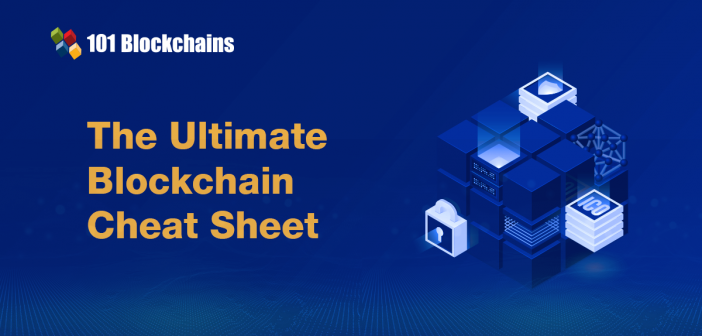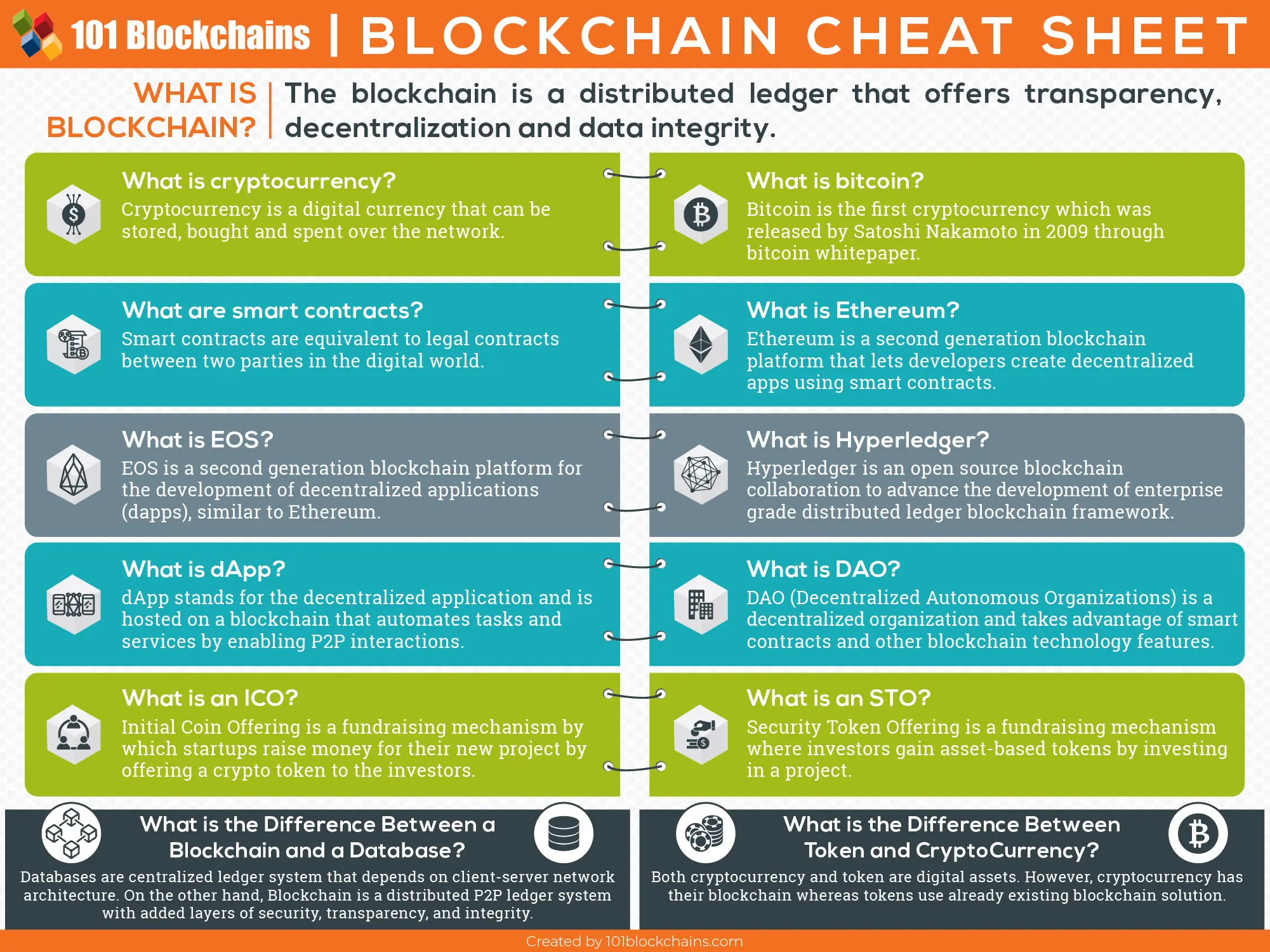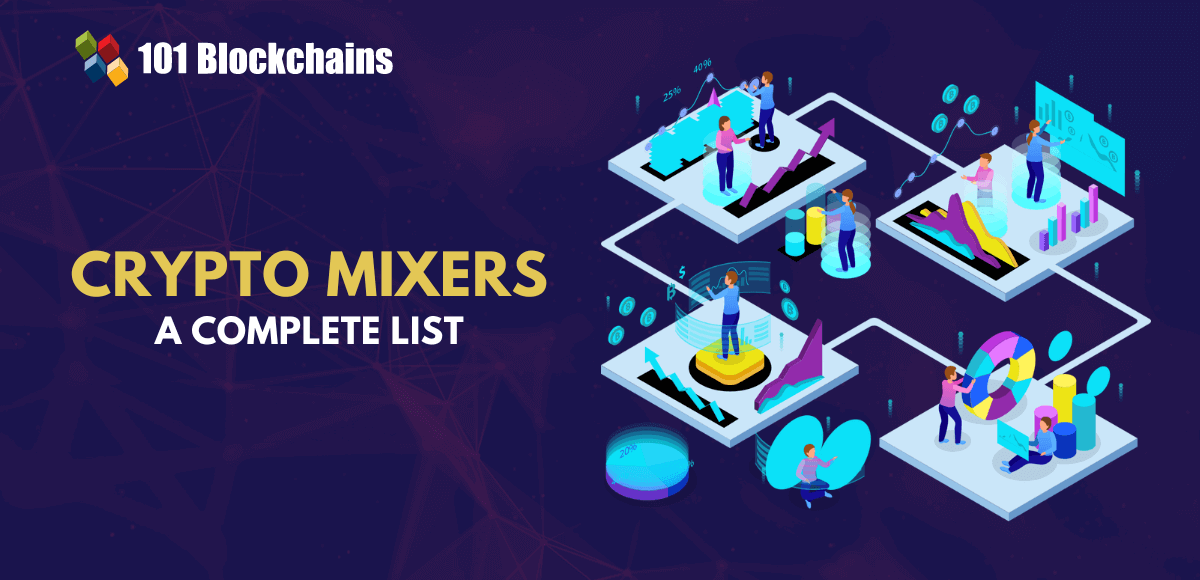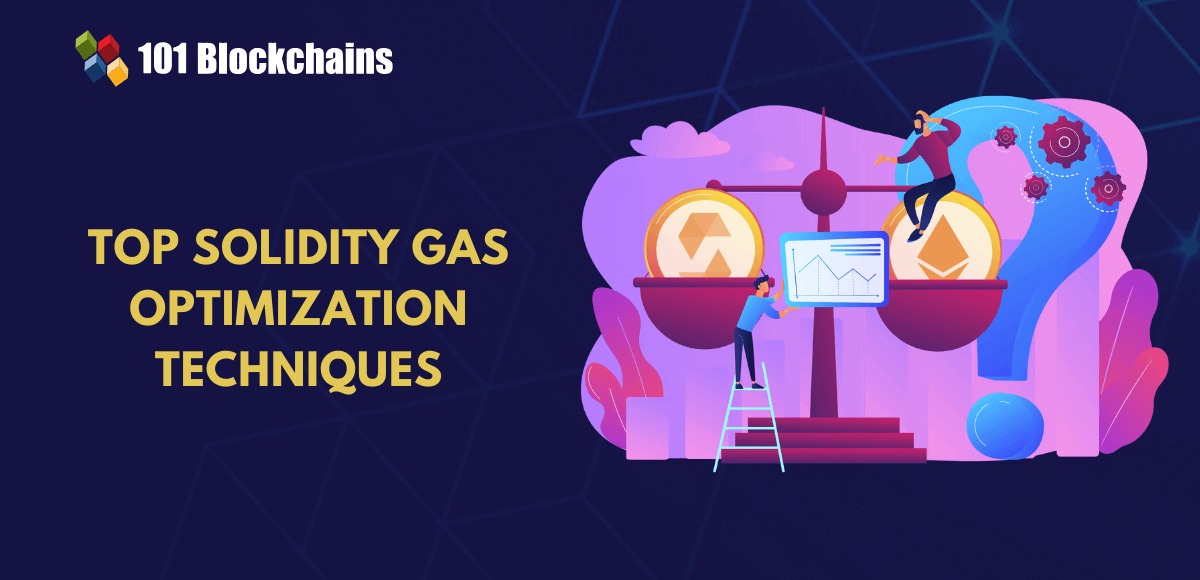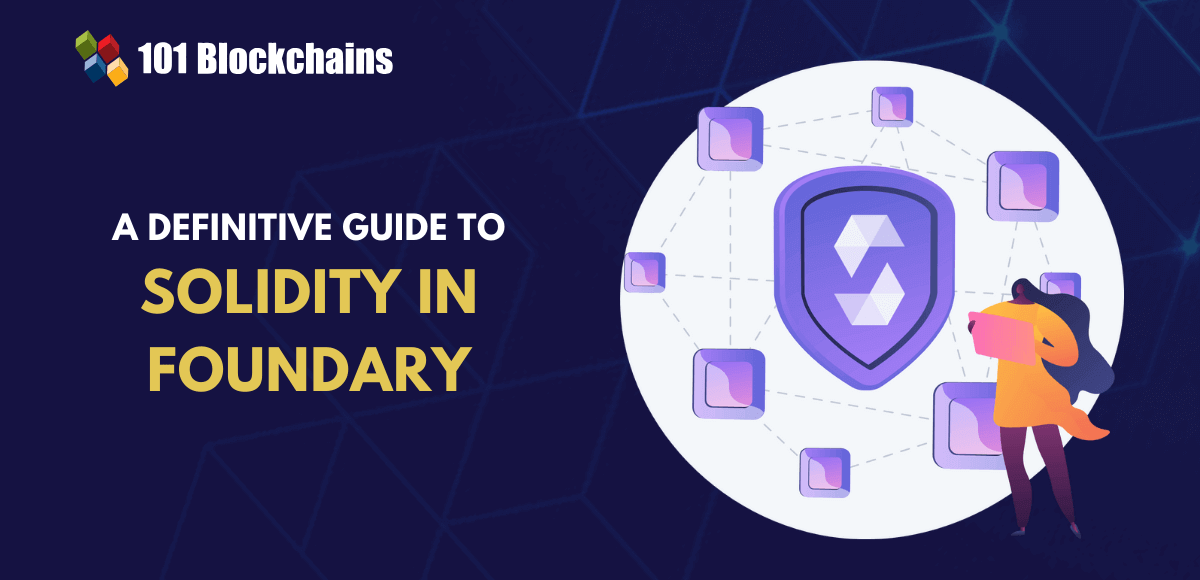The blockchain is the next generation technology that is completely revolutionizing every aspect of our lives. Despite a lot of online controversy and debate, the role of blockchain in our growth just cannot be denied. It is here to stay, and many industry experts think the same.
If you are a newbie, who is looking for a blockchain cheat sheet, then you have come to the right place. Today, we will be going through 15+ blockchain questions and answer that everyone should know about.
The blockchain is slowly transforming the social systems around us. It is providing a key feature that other technology failed to provide until now, i.e., decentralization. The decentralization feature is also changing our finance sector and enabling it to impact almost every vertical out there.
In short, advantages of blockchain are more than disadvantages. So, without any delay, let’s get started with the blockchain things that everybody should know about. You can also download the blockchain cheat sheet pdf to keep it with yourself and learn on the go.
Build your identity as a certified blockchain expert with 101 Blockchains’ Blockchain Certifications designed to provide enhanced career prospects.
15+ Blockchain Questions Everybody Should Know About
Please include attribution to 101blockchains.com with this graphic. <a href='https://101blockchains.com/blockchain-infographics/'> <img src='https://101blockchains.com/wp-content/uploads/2018/12/The_Blockchian_Cheat_Sheet.png' alt='Blockchian Cheat Sheet='0' /> </a>
1. What is blockchain?
We can think blockchain as a decentralized database. But, it is more than that. The blockchain is a decentralized ledger. In a blockchain, data can be stored, recorded, traced and worked upon without the need of any centralized authority. Blockchain consists of blocks which in turn consists of transactions assigned to it. Each of the transactions is encrypted in nature which in turn protects the identity of the participants. This simple idea has tons of use cases and can be implemented in almost every vertical out there including finance, government, transport and so on.
Want to undertsand more about the blockchain technology? Check here for a detailed guide on Blockchain Technology Explained: A Decentralized Ecosystem now!
2. Is blockchain worth?
Now, that we learned about blockchain, we need to answer our next question, “Does blockchain matter?” If yes, why does it matter?
The blockchain is worth every attention now. It is a revolutionary technology that is providing an alternative to the traditional money controlled and issued by the government. The digital currency that blockchain offers such as bitcoin is extremely popular and can be used to make transactions faster, more secure and private. There are also many startups that are working towards making blockchain more advanced regarding features and functionality. You can also use digital currencies to buy day-to-day items.
It has already impacted the industry as it is enabling businesses to become future ready and ensure that they grow in the right direction. Moreover, blockchain is an ideal technology to be used for identity system where individuals driver license, national ID and other identity metrics can be stored and accessed anonymously.
3. What is Cryptocurrency?
Cryptocurrency is best known as the digital currency that can be stored, bought and utilized over the blockchain or distributed network. It works similar to digital cash with no real-world existence. The value of the cryptocurrency depends on market conditions. One of the most popular cryptocurrency is bitcoin. It is also the first digital coin to came into existence in 2009. Cryptocurrency can be used to trade without any centralized authority. It also makes transactions cheaper and faster. Other key examples of cryptocurrency include Ethereum, NEO, EOS, and so on.
Learn the fundamentals, working principle and the future prospects of cryptocurrencies from the E-book: AN INTRODUCTION TO CRYPTOCURRENCY FUNDAMENTALS
4. What is Bitcoin?
Bitcoin is the first digital currency that used blockchain technology. It came into existence with the release of the bitcoin whitepaper in 2009 by Satoshi Nakamoto. From there, it has achieved a lot of popularity. Experts are also working on it to add new feature including the latest lightning network which will make transactions faster on the bitcoin network. In terms of price, it saw all-time high of $19k in 2018 end. At the time of writing, it is currently hovering around $6K per bitcoin.
Bitcoin uses Proof-of-Work(PoW) consensus algorithm to reach consensus in the network. It is a way to approve transactions and ensure that they are valid. Even though bitcoin is so popular, they are not liked by banks as it gives decentralization to the normal people. However, banks do love blockchain.
Want to become a bitcoin expert? Enroll Now in Getting Started with Bitcoin Technology Course
5. What are smart contracts?
Smart contracts are equivalent to a legal contract in the digital world. It is written in code and is signed beforehand by two parties using it to perform a task such as a transaction. Smart contracts can be used to exchange assets including properties, automate ownership and copyright and also automate an organization(DAO). Smart contracts work without any centralized authority and hence take advantage of it to automate a lot of tasks. The contract is held between two anonymous parties where events are triggered, and the code is executed.
Curious to understand the complete smart contract development lifecycle? Enroll in Smart Contracts Development Course Now!
6. What is Ethereum?
Ethereum is a blockchain technology which is open source and lets developers utilize technology to create decentralize applications which are also known as dApps. The technical difference between bitcoin and Ethereum are significant. Ethereum lets developers host new apps on its blockchain with the help of smart contracts and dApps. Automation is also a big part of the Ethereum network. Ethereum solves a lot of problems that Bitcoin had. Vitalik Buterin developed it as he is trying to solve the problem from a different perspective. Ethereum utilizes Proof-of-Work(PoW) consensus algorithm, however, it does plan to move to Proof-of-Stake(PoS) in the future. When we compare Ethereum with Bitcoin, it falls under the second generation of blockchains. This means that it utilizes smart contracts to automate a lot of tasks. Developers can also develop decentralized dApps which aim to solve more significant problems or facilitate a service over the Ethereum platform.
Want to learn the Fundamentals of Ethereum Development? Enroll Now: Ethereum Development Fundamentals
7. What is EOS?
EOS is a blockchain platform which can be used to build and deploy industrial-scale applications. It works similar to Ethereum in many ways and is developed by Dan Larimer. EOS main motive it to remove transaction fee and provide scalability at the same time. EOS can be used by developers to develop dApps and scale them without worrying about the network bottleneck. EOS uses a decentralized operating system to ensure that the blockchain is scalable and ensure communication between apps are top-notch. Currently, Block.One is in charge of managing EOS development.
8. What is Hyperledger?
Hyperledger is an open source blockchain collaboration to advance blockchain technologies and facilitate the development of enterprise grade distributed ledger blockchain framework. It is formed across the industry where everyone will work towards making blockchain more accessible and easy to work with. Both tech giants and startups are participating in the ecosystem to ensure that blockchain has an enterprise-grade framework to work with. To ensure that they don’t lose the focus, they will not release any cryptocurrency attached to the project. Currently, four projects are running under HyperLedger including Burrow, Indy, Sawtooth, and Fabric.
Take a deep dive into common hyperledger terms with the Hyperledger Flashcards
9. What is dApp?
dApp stands for the decentralized app and is hosted on a blockchain platform. They take advantage of the decentralized ledger and run on top of the blockchain network. Developers can use smart contracts to code dApps. This gives dApps the ability to be automated without the need for a human interference. The first blockchain network that brought dApps is Ethereum. It enabled developers to develop dApps with the help of smart contracts. Decentralized apps cannot be controlled by centralized authority. The app might have its own cryptocurrency to facilitate different activities offered by it.
10. What is DAO?
DAO stands for decentralized autonomous organizations. DAO is a decentralized organization and takes advantage of smart contracts and other blockchain features. It can run on its own and doesn’t have hierarchical management associated with it. The code is pre-written which process different features and functionalities that DAO has to offer. It is operated with the help of distributed consensus protocols. Ethereum and EOS support DAO and anyone can define a rule and build a DAO that works independently.
Excited to develop fluent knowledge of the DAO ecosystem? Enroll Now in DAO Fundamentals Course!
11. What is blockchain digital transformation?
We are in the era of blockchain digital transformation. The current digital landscape is being revolutionized by blockchain. Almost all the verticals out there are impacted by blockchain. It can be entertainment, law and crime, technology, media, file management and so on. Each vertical is now taking advantages of blockchain as the advantages are more than its disadvantages.
12. What is an ICO?
ICO stands for Initial Coin Offering. It is a fundraising mechanism by which startups raise money for their new project by offering a crypto token to the investors. It sounds similar to IPO but does have a lot of differences between. ICOs are easy to carry out as they require fewer preparations compared to other investment methods. The U.S Securities and Exchange Commission(SEC) is in charge of determining tokens status.
13. What is STO?
STO stands for security token offerings. They work differently than ICO where you buy tokens by the method of crowdfunding. In ICO, you don’t buy shares of the company. STO solves this problem by giving you actual financial security which in turn can let you participate in the company’s activities including voting rights. Actual assets back STO and hence require careful planning, unlike ICO. Polymath is a popular platform which enables startups or companies to perform an STO. It has an ST-20 standard for token creation, distribution, and storage.
14. What is the future of blockchain?
Our last question in the blockchain cheat sheet is about the future of blockchain. So, where we stand and what’s does the future of blockchain holds? Currently, blockchain is still in its infant stage and require a lot of innovation to be adopted across the different verticals. Many startups are working actively in the field of blockchain to provide cutting edge solution to problems using blockchain.
In the future, we will see a large adoption of digital currency and blockchain. Even government are interested in transforming their services with blockchain. You can read more about what we think about the future of blockchain.
15. What is the Difference Between a Blockchain and a Database?
This is one of the fundamental blockchain questions that are asked by newbies. From the surface, both database and blockchain look similar. But, internally blockchain is far more complicated compared to a database. The blockchain is a distributed ledger which stores information that can be traced back whenever needed. Blockchain also offers integrity compared to a traditional database. The database offers CRUD operations whereas Blockchain doesn’t.
16. What is the difference between token and cryptocurrency?
Cryptocurrency is a digital asset which has its own blockchain associated with it. Bitcoin is a good example of cryptocurrency. Token, on the other hand, doesn’t have an exclusive blockchain network for it. A token is built on top of an existing blockchain. Example of a token include Binance(BNB) coin.
| Question | One-sentence explanation |
|---|---|
| What is blockchain? | The blockchain is a distributed ledger that offers transparency, decentralization and data integrity. |
| Is blockchain worth pondering? | Yes, it is worth as it is currently shaping the industries and social life around us. |
| What is cryptocurrency? | Cryptocurrency is a digital currency that can be stored, bought and spent over the network. |
| What is bitcoin? | Bitcoin is the first cryptocurrency which was released by Satoshi Nakamoto in 2009 through bitcoin whitepaper. |
| What are smart contracts? | Smart contracts are equivalent to legal contracts between two parties in the digital world. |
| What is Ethereum? | Ethereum is a second generation blockchain platform that lets developers create decentralized apps using smart contracts. |
| What is EOS? | EOS is a second generation blockchain platform for the development of decentralized applications (dapps), similar to Ethereum. |
| What is Hyperledger? | Hyperledger is an open source blockchain collaboration to advance the development of enterprise grade distributed ledger blockchain framework |
| What is dApp? | dApp stands for the decentralized application and is hosted on a blockchain that automates tasks and services by enabling P2P interactions. |
| What is DAO? | DAO(Decentralized Autonomous Organizations) is a decentralized organization and takes advantage of smart contracts and other blockchain technology features. |
| What is an ICO? | Initial Coin Offering is a fundraising mechanism by which startups raise money for their new project by offering a crypto token to the investors. |
| What is an STO? | Security Token Offering is a fundraising mechanism where investors gain asset-based tokens by investing in a project. |
| What is the future of blockchain? | The future of blockchain looks bright with both industry and the government implementing across their systems. |
| What is the Difference Between a Blockchain and a Database? | Databases are centralized ledger system that depends on client-server network architecture. On the other hand, Blockchain is a distributed P2P ledger system with added layers of security, transparency and integrity. |
| What is the difference between token and cryptocurrency? | Both cryptocurrency and token are digital assets. However, cryptocurrency has their blockchain whereas tokens use already existing blockchain solution. |
Conclusion
This leads us to the end of the blockchain cheat sheet where we discussed 15+ must known blockchain questions and answers. We also recommend you to get the blockchain cheat sheet pdf format for easy referencing later on.
Want to keep all of these with yourself? Download the blockchain cheat sheet pdf format and learn about blockchain. You can also share the pdf with your peers and ensure that they are also on the same learning path.
*Disclaimer: The article should not be taken as, and is not intended to provide any investment advice. Claims made in this article do not constitute investment advice and should not be taken as such. 101 Blockchains shall not be responsible for any loss sustained by any person who relies on this article. Do your own research!

